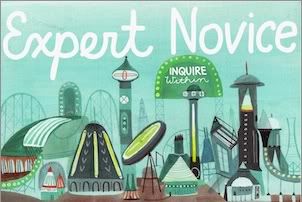 Guru / Prophet
Guru / ProphetYou could also say that I was converted. Mind you, this was before I even knew about the Cult of David—a cult which, coincidentally, gets some pretty heavy exposure on LifeHacker and 43 Folders, where his method is referred to simply as "GTD."
So I tried his strategies, and you know what? They worked great. During the summer, at least, when I was juggling a couple of research assistant jobs and had a lot of time for organization. But when I got to school, things started to fall apart. My context-based Next Action lists suddenly weren't doing it for me anymore; or rather, I wasn't doing them.
So I tried his strategies, and you know what? They worked great. During the summer, at least, when I was juggling a couple of research assistant jobs and had a lot of time for organization. But when I got to school, things started to fall apart. My context-based Next Action lists suddenly weren't doing it for me anymore; or rather, I wasn't doing them.
But it's summer again, and nearly time for school, and I'm ready to hop on the bandwagon again. Except this time, the bandwagon's going to need a little modding. So today, I was elated to stumble upon this little gem of heresy, Antony Johnston's article on Getting Things Written, via 43 Folders. Johnston has some pretty radical ideas on how to modify GTD for the freelance writer, but as far as I'm concerned, they apply equally well to students. I mean, raise your hand if this bit could apply to you:
I really recommend reading the article, but here are some of the highlights:
Like a lot of lifehack addicts, I'm hooked on that sense of possibility that comes from envisioning a new system for my life. The exciting thing about Johnston's GTD adaptation? I think it might actually work.
"Writers have a small number of large tasks that require many hours of work, often over multiple separate days, and mainly in a single continuous environment (i.e. We spend all day in front of our computers, which also makes the @Computer context somewhat redundant). Our working days aren't primarily interrupt-driven, most of us don't have staff we can delegate to (or receive new tasks from), and frankly we just want to get on with, you know, writing instead of dealing with all this horrible business stuff."Replace the word "writers" with "students who have multiple 20-page papers to write," and you start to get the picture.
I really recommend reading the article, but here are some of the highlights:
- make "ubiquitous capture" the cornerstone of your approach—first priority is making sure no fresh ideas or repetitive worries escape.
- paper, truly, is the most versatile tool; I like to draw my to-do lists with nice markers so that they don't look quite so menacing and bullet-pointy.
- avoid "Evaluation analysis paralysis" at all costs! The whole point point of Getting Things Done is to do them, not to organize them so that you can avoid doing them.
Like a lot of lifehack addicts, I'm hooked on that sense of possibility that comes from envisioning a new system for my life. The exciting thing about Johnston's GTD adaptation? I think it might actually work.



No comments:
Post a Comment